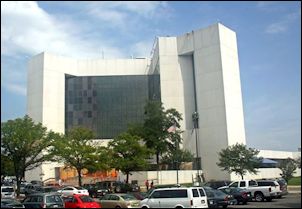by James A. Bacon
Upstart transportation companies Uber and Lyft, which link drivers and passengers by means of a smart phone, have run into resistance from taxicab companies and municipal regulators around the country. But Virginia is the first state to crack down on the two companies, contends Ken Cuccinelli, former attorney general, in a Sunday op-ed in the Richmond Times-Dispatch. That fact should give pause, he suggests, to anyone who fantasizes about Virginia staying in the vanguard of technological progress.
“For all the talk in my home state about being an innovative and inviting place to do business, when the rubber meets the road — literally in this case — it doesn’t always play out that way,” Cuccinelli writes. “Virginia holds the dubious distinction of being the first entire state to join the Luddite parade.”
Remarkably, while the Virginia code permits automobile ride-sharing it does so only for “those which do not involve transporting passengers for profit.” Earlier this month the Department of Motor Vehicles issued cease-and-desist letters against Uber and Lyft to halt their “illegal” operations until state law is modified and urged them to participate in a study group that will issue a report before the 2015 General Assembly session. The two companies assert that they are operating legally and have refused to shut down their Virginia operations.
Anyone who wonders why Virginia has tumbled from a No. 1 rating in CNBC’s Best State to do Business rankings to No. 8 need look no further for an example why. The state code literally discriminates against for-profit enterprises. While DMV deserves a modicum of credit for opening up the issue for study, any recommendations contained in the report are likely to be influenced by participating “stakeholders”… such as the taxicab lobby, the limousine lobby and other transportation providers who feel threatened by the superior technology of the Silicon Valley upstarts.
But there are larger issues at stake than Uber and Lyft. Cuccinelli makes some valuable points:
Starting with Virginia, governments need to change how they react to new and innovative (even disruptive) businesses that don’t fit neatly within traditional regulatory structures. Their first reaction must be to question the relevancy of their regulatory structure rather than immediately attempt to crush the new entrant. …
We need our governments and regulatory systems to accommodate innovation and new providers, not crush them — which is the current knee-jerk reaction of many governments and regulators. …
If Virginians want to be able to use Uber or Lyft to get a ride within 10 minutes instead of calling a taxi and hoping one arrives in an hour, then we need a government that doesn’t put the taxi owners in charge of regulating Uber.
Governments need to rethink their regulatory models, Cuccinelli writes.
Otherwise the rest of us aren’t just going to be denied more convenient and cost-effective transportation, we will be denied an infinite number of other goods and services in the future as well, because other companies that would make our lives better for less money will never come into being.
On this point, Cuccinelli is absolutely right. I have written repeatedly about the coming transportation revolution, of which Uber and Lyft are only a small part, that could bring extraordinary benefits to Virginia (See “Virginia Transportation in the Slow Lane.”) We can lead this revolution by creating the conditions for it to take place here first, or we can cling to old ways and fight the inevitable. The banking banking deregulation of the 1980s is a useful point of comparison. North Carolina was faster out of the gate to deregulate its banks, with the consequence that its banking industry consolidated more rapidly than Virginia’s. North Carolina became a national banking center surpassed only by New York, and Virginia’s major banks were all swallowed up. The Old Dominion suffered a dramatic loss to its business leadership.
Virginia missed a once-a-generation opportunity then. Let’s not miss the next one.



